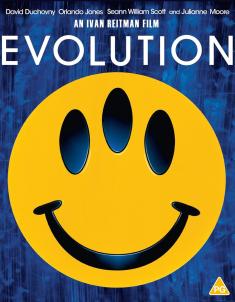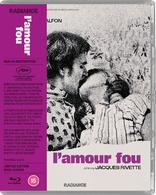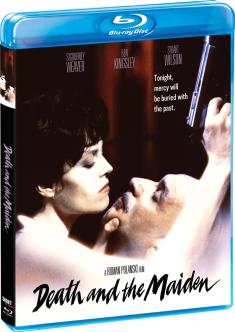The Normal Heart
Overview -
Ryan Murphy and Larry Kramer's drama tells the story of the onset of the HIV-AIDS crisis in New York City in the early 1980s, taking an unflinching look at the nation's sexual politics as gay activists and their allies in the medical community fight to expose the truth about the burgeoning epidemic to a city and nation in denial.
Mark Ruffalo portrays Ned Weeks, who witnesses first-hand a mysterious disease that has begun to claim the lives of many in his gay community and starts to seek answers. Matt Bomer plays Felix Turner, a reporter who becomes Ned's lover. Taylor Kitsch plays Bruce Niles, a closeted investment banker who becomes a prominent AIDS activist. Jim Parsons plays gay activist Tommy Boatwright, reprising his role from the 2011 Broadway revival. Roberts plays physician Dr. Emma Brookner, a survivor of childhood polio who treats several of the earliest victims of HIV-AIDS.
Storyline: Our Reviewer's Take
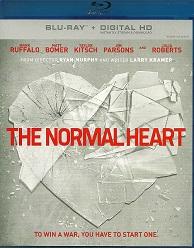
'The Normal Heart' is HBO's adaptation of Larry Kramer's Tony Award-winning play, directed by Glee creator Ryan Murphy, and starring an impressive cast of actors, led by Mark Ruffalo, who plays Ned Weeks, a more or less autobiographical version of Larry Kramer himself.
The story focuses on the early days of the AIDS crisis in the 1980s, when little was known about the disease, and even less was known about how to treat it. The movie is set in the New York City area, where Weeks (Ruffalo), who is a writer, learns of the disease that seems to have its biggest exposure within the gay community. He befriends the wheelchair-bound (due to childhood polio) Dr. Emma Brookner (Julia Roberts), who has the most knowledge of the disease in the New York area, yet is rebuffed by a large portion of the gay community when she suggests their best line of defense would be to avoid sexual contact.
Frustrated that neither the local nor national government is paying any attention to the disease, Ned and some of his friends form their own organization to both try and raise money for research as well as become a public voice speaking about the crisis. However, Ned runs afoul of many of his fellow members when he's a bit too aggressive in calling out/blaming the government for how bad the crisis has gotten.
While Ned is taking on his personal crusade, he finds himself falling in love with and getting involved in a relationship with a younger New York Times reporter, Felix Turner (Matt Bomer). The film goes to great lengths to establish their closeness in the first half, so – naturally – it can tug at the audience's emotional strings when things take a turn for the worse in the second half of the movie.
The above is one of the reasons I'm not as thrilled with 'The Normal Heart' as many other reviewers and critics (the movie has been nominated for 16 Emmys, and will probably win the majority of its categories) seem to be. Yes, all movies attempt to manipulate their viewers in certain ways, but few are as aggressively obvious about it as 'The Normal Heart'. We've seen other movies deal with the suffering of AIDS victims in much more moving ways. Such films include, but are not limited to, Philadelphia, HBO's own 'Angels in America', and last year's fantastic Best Picture nominee, Dallas Buyers Club. While 'The Normal Heart' is an honorable attempt to address the same issues those films did, it's just not as memorable as any of those movies.
Another problematic area is in terms of the acting. There's no doubt that 'The Normal Heart' is filled with some great talent, and – for the most part – they do a pretty good job throughout. However, almost every character seems to have one (or in the case of star Ruffalo, several) scene in which they have a long (and usually loud and explosive) monologue about the issues being faced. Sadly, these scenes – which should be powerful moments – come off as melodramatic and 'written'. I'm guessing they're scenes taken from the stage play that work very well there, but come off as unrealistic and 'stagey' in a dramatic film. Instead of adding to the power of the movie, they detract from it. There's one actor, however, that doesn't fall into this trap, although he's given some 'big' scenes – and that's Big Bang Theory star Jim Parsons, who plays Tommy Boatwright, one of the members of Ned's organization. As a result, his portrayal comes off as one of the most realistic in the entire movie, and I'll be rooting for him the most when the Emmys are given out (he got a Best Supporting Actor nod).
I actually blame most of the above on Director Ryan Murphy, who should have done a better job of reeling in his talent and knowing that less is often more when it comes to filmmaking (his direction, while competent, isn't particularly memorable, either). Yet, despite all those issues, I still can't say that 'The Normal Heart' isn't worth checking out. Yes, it's both manipulative and melodramatic, but it's heart (pardon the pun) is in the right place, and I imagine there are many out there too young to remember the early days of the AIDS crisis, which makes this an important movie, despite its many flaws. As long as one goes into it knowing its problems, there's still plenty to appreciate about the film.
As a bit of an aside, there's one more thing about 'The Normal Heart' that really bothered me – just as much as the manipulation and melodrama – and that's the unnecessary need the filmmakers seem to have to attack the legacy of President Ronald Reagan throughout the film (including a coda at the end), claiming that he never mentioned AIDS until 1987, and claiming he cut the funding for AIDS during his administration. Now, I'm neither a Republican or a Reagan apologist, but both claims are revisionist history. The truth is that Reagan talked about the AIDS crisis a number of times before 1987 (as early as 1985, in fact). The 1987 reference is actually the first time Reagan devoted an entire speech to the crisis – but to say he never mentioned it before then is simply bad history. As for the so-called budget cuts, the truth here is that the portion of the budget devoted to the crisis grew every single year under the Reagan presidency. One can certainly argue that the man didn't do enough, but to say he did nothing or next-to-nothing is simply bad history, plain and simple. So potential viewers should take such comments with a grain of salt when watching the movie. It doesn't take away from the film, nor did it affect my final rating of it, but it does water down its message unnecessarily.
The Blu-Ray: Vital Disc Stats
'The Normal Heart' arrives on Blu-ray in a standard eco-friendly keepcase that houses the single 50GB dual-layer disc along with an insert containing a code for a digital copy of the movie. The disc is not front-loaded with any trailers or promotions and, after the HBO logo, goes straight to the main menu, which consists of a montage of clips from the movie, with menu selections running vertically along the left side of the screen.
Although the keepcase slick has been labeled for Region A, the Blu-ray is actually region-free (confirmed for both Region B and Region C).
Video Review

'The Normal Heart' was shot primarily on 35mm (using Arricam ST cameras), and maintains a very film-like look throughout, while still having a nice sharpness overall. Film grain is present consistently, although nicely pushed to the background and not very heavy. There are a few moments in the movie where television footage has been recreated by the director, and those shots (in addition to being shown at the 1.33:1 aspect ratios) are created to look intentionally like 'bad' early-1980s video, including haloing/ghosting around the participants and an overall fuzziness/blurring).
The transfer doesn't contain the 'pop' of the sharpest Blu-rays I've watched, but it does a pretty good job showing details, particularly in scenes that were shot outside. Indoor shots are slightly less crisp and slightly more muted, although colors and fleshtones remain consistent throughout the film. Black levels are decent, but they do tend to become slightly murky in several dimly lit indoor sequences. Overall, I detected no noticeable issues with aliasing, banding, or other types of visual glitches.
Audio Review
The primary track here is an English 5.1 DTS Master Audio track, that more than fits the bill for a movie that is primarily filled with scenes of characters talking to one another. The soundtrack of 'The Normal Heart' does include a nice collection of popular tunes from the period, during which one's home theater will come alive. In most of the rest of the movie, however, the surrounds are rarely used, or at least used in such a minimal way, it's hard to pick up on them.
While the audio provided certainly serves the movie's needs, there's very little (if any) in terms of directionality or immersiveness. Dialogue is exclusively from the front, but it's also nicely clear and distinctive throughout. The track is also free from any obvious glitches. Overall, this is a quite serviceable, if unspectacular, lossless track.
Audio is also available in French 5.1 DTS and Spanish (Latin) 2.0 DTS. Subtitles are available in English SDH, Spanish (Latin), and French.
Special Features
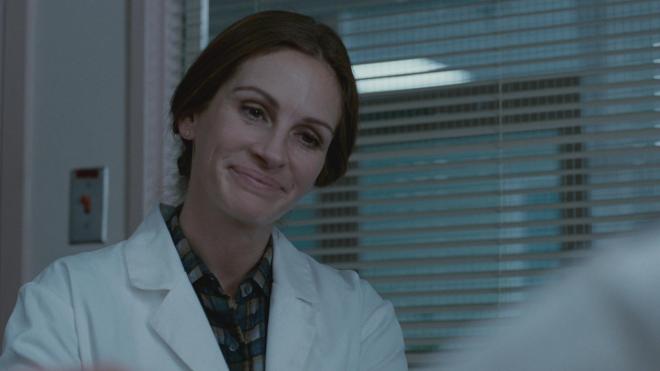
- How to Start a War (HD, 9 ½ min.) – The only bonus feature on this release is this short behind-the-scenes promo piece, which features cast members talking about their involvement with the movie. Also included are some comments from writer Larry Kramer, who is the real-life basis for the character of Ned Weeks in the film (and in Kramer's play, which the film is based upon).
Final Thoughts
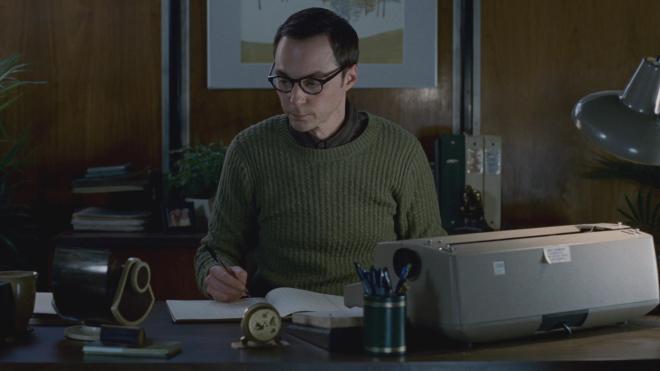
Can a movie get credit for trying to tackle an important subject, yet still be disappointing in its execution? That's exactly how I feel about 'The Normal Heart', which I felt was too melodramatic and manipulative to rank as a 'great' film, yet I admired enough of what they were aiming for to encourage others to give it a viewing. Still, even if you like the result better than I did, this is something most are unlikely to want to view more than once. Rent it.






